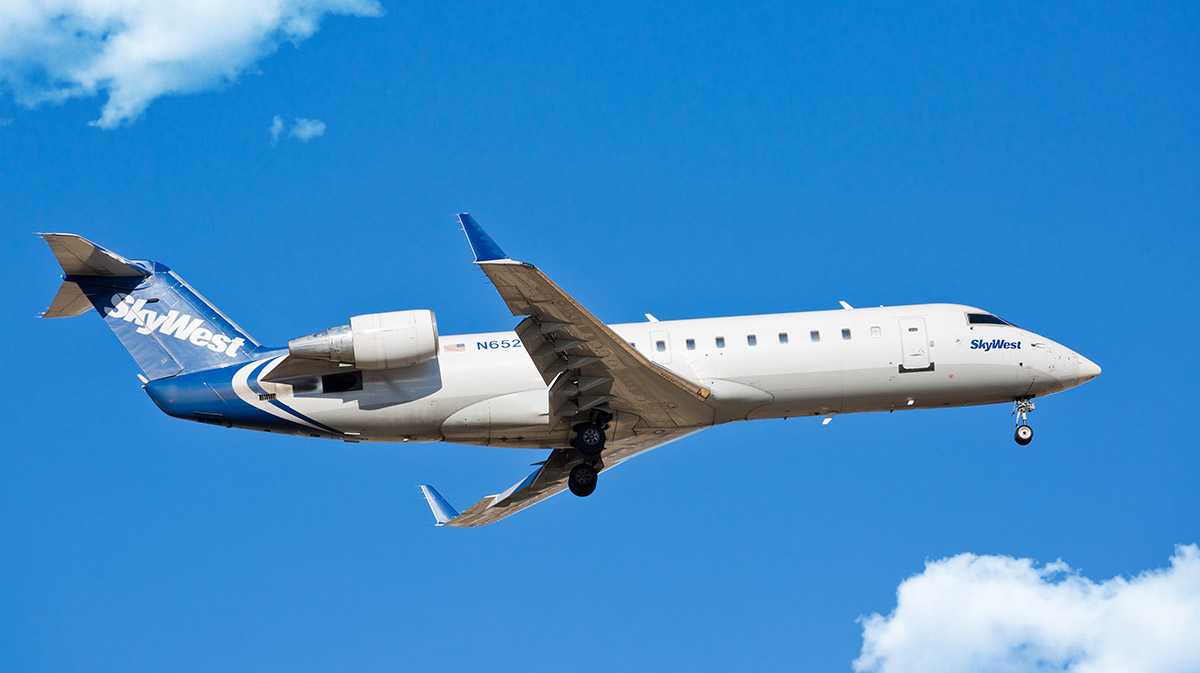
From Amateur to Aviator: How to Become a Commercial Pilot
Leading Edge Flight Academy can help you achieve your dream of taking to the skies. This blog will walk you through how to become a commercial pilot. But before starting flight school, there are some helpful things to know! We’ll walk you through each step, from starting ground school to passing flight checks.
Headed For the Airlines? Choose a Flight School to Learn How to Become a Commercial Pilot
Your journey to becoming a commercial pilot begins with choosing the right flight school. Leading Edge Flight Academy is an FAA-approved Part 141 school renowned for excellence in aviation education and training. Here’s how to get started with us.
Our comprehensive programs in Bend, Oregon, are designed to prepare you for a successful career as a commercial pilot. Start on our website to learn about our admissions requirements and application process. Consider your financial options for tuition and living expenses while in training. Many students, especially veterans, are eligible for loans or scholarships to help with training costs.
Begin Your Private Pilot Training
Your private pilot training begins once you are accepted into Leading Edge Flight Academy. This foundational training is essential for how to become a commercial pilot. You will start ground school at this phase, learning the theoretical and practical knowledge necessary for aviation. This includes navigation, flying in variable weather, and aerodynamics. Alongside ground school, you’ll get flight training involving hands-on experience in the cockpit, like learning the basics of aircraft operation, takeoffs, and landings. Eventually, you’ll have the skills and opportunities to complete solo flights, building on your confidence to add instrument ratings.
Add Your Instrument Rating for Clearance to Fly in Adverse Weather
With your private pilot’s license in hand, the next step for how to become a commercial pilot is to gain your instrument rating. Learning to fly solely by reference to instruments is a crucial skill every pilot needs to handle adverse weather conditions. Additionally, you’ll learn instrument flight rules (IFR) and instrument navigation. After completing your training, you must pass a check ride with an FAA examiner to obtain your instrument rating.
How to Become a Commercial Pilot? Work Toward Your FAA Hours Requirement!
The Certified Flight Instructor (CFI) and Certified Flight Instructor-Instrument (CFII) rating further enhances your qualifications as a pilot and gets you one step closer to entry-level pilot jobs. Teaching aspiring pilots at a flight school gives you valuable flight hours to apply toward your commercial pilot’s license.
The FAA requires commercial pilots to obtain 1,500 flight hours before taking a job transporting passengers. Once you complete and become one of our instructors, you will average 50 to 70 flight hours a month, allowing you to reach your hours requirement quickly. Some pilots like teaching others and decide to stay with it, while others will take jobs in the aviation industry.
Interview and Get Your First Job as a Commercial Pilot With the Airlines (or at Other Companies)
Leading Edge provides career development support and services to help our commercial pilots reach their aviation goals. After nearly 20 years of launching professional pilot careers, we have the experience, industry partnerships, and resources to help our flight school students land their dream jobs! Our pilot pathway partners include the Horizon Pilot Development Program, SkyWest, Ravn Alaska, and Alaska Seaplanes. And if you’re curious about how to make flying your profession, you can still get paid without becoming a commercial pilot. Our pilots can explore other pathways, like flying with a fractional aircraft ownership company like PlanseSense. The sky is truly the limit!
Let Your Career Takeoff With Leading Edge
Becoming a commercial pilot is a rewarding and challenging journey that begins with the right education and training. Leading Edge Flight Academy is proud to provide our pilots with the training, skills, and opportunities they need to reach their aviation goals. Contact our admissions team to start the journey with us.


